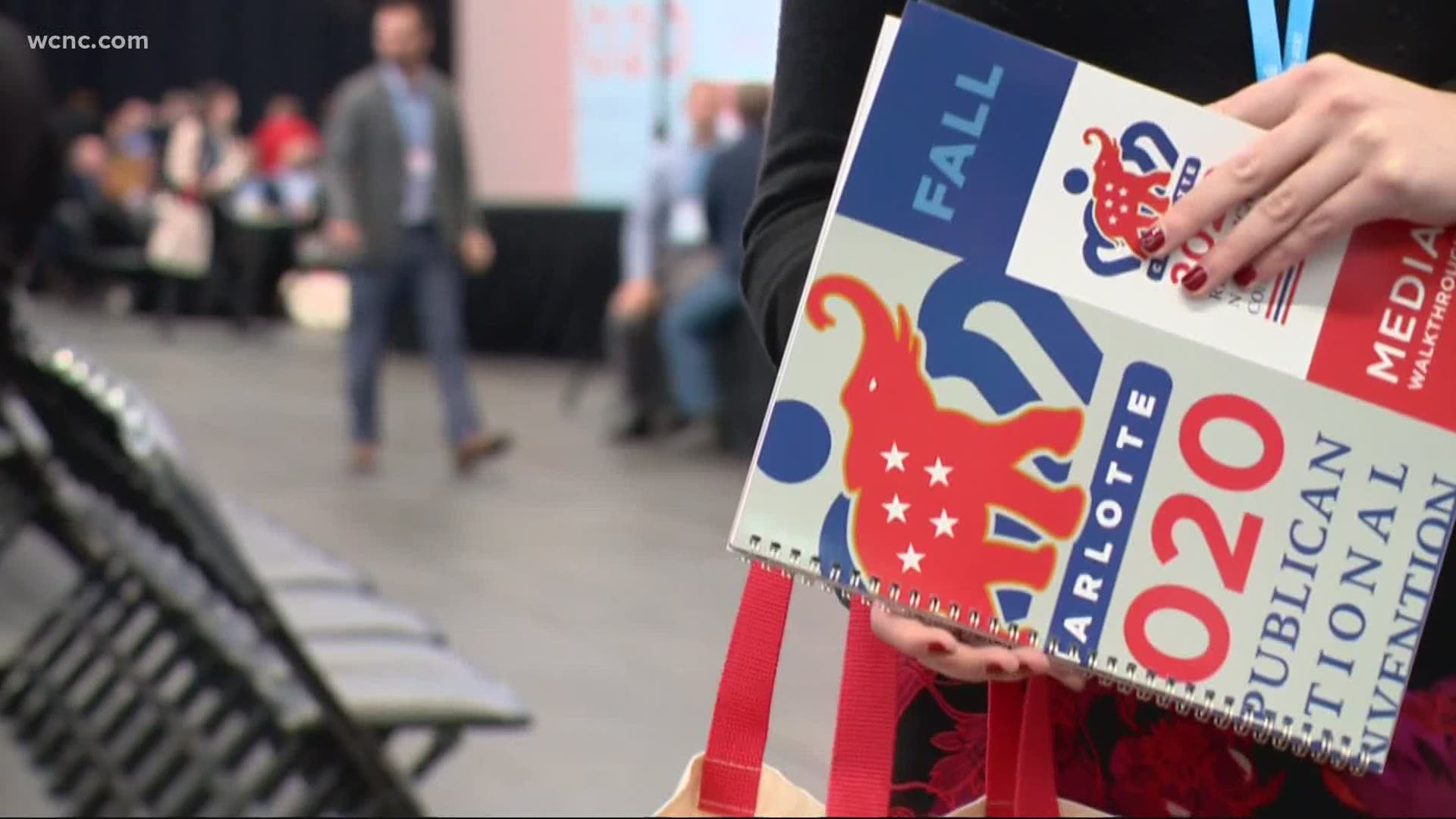CHARLOTTE, N.C. — The RNC's top doctor who helped create the plan to keep the coronavirus from spreading during the scaled-down event told Charlotte City Council members the convention is "still a high-risk event." However, he believes the virus can be kept at bay through a detailed health plan.
"This is a serious issue," said Dr. Jeffrey Runge, the RNC's senior health and medical advisor.
On Monday, he and Mecklenburg County Health Director Gibbie Harris briefed council members 11 days before RNC events begin.
"The way we mitigate that is to put in multiple layers of risk reduction that can bring that risk level down into the acceptable range," Dr. Runge added.
The health and safety plan consists of a planning doctrine, preventative measures, mitigation, and response.
Roughly 400 attendees will make their way to RNC meetings during a pandemic that has shut down the country and forced North Carolina to remain in phase two of its reopening plans.
Under the planning doctrine, all events will follow state and local health directives, with the top priority of convention planners being the safety and health of all attendees, support staff, and surrounding community.
Dr. Runge admitted to the council, though, the plan will only work if everyone does their part.
The protocol has already started. All attendees should have started a 14 day enhanced social distancing practice. Seven days before delegates and their guests attend, they must be tested for COVID-19 by an at-home test in which health officials have confidence in.
Once they arrive in the Queen City, the delegation will be tested again by Novant Health. If they ever test positive or show symptoms during their time in Charlotte, they will be isolated.
If they ever test positive or show symptoms during their time in Charlotte, they will be isolated.
“There’s going to be 100% compliance with physical distancing,” Dr. Runge added. “The chairs do not move in the meeting rooms.”
The largest room, where all 336 delegates will sit, is sectioned off into groups from 31 to 53 people in each group, according to a diagram.
Chairs will be 6 feet away from each other in every direction, Dr. Runge added.
Daily temperature checks, questionnaires, and symptom checks will also be done.
Medical staff will be doing second visual evaluations as well, Dr. Runge explained. If someone doesn’t look well, he or she will be isolated until a test result comes back showing they don’t have the virus.
Those attending the meetings and small events will also be required to wear a fob. It will track who each person comes in contact with, the proximity to the person, and for how long they were next to each other, Dr. Runge told council.
If someone ends up falling ill with the virus, the technology will help contact tracers know exactly who came in contact with the sick person and who needs to be quarantined.
Once everyone leaves Charlotte, follow-up exams will also take place.
“We’re going to follow them up when they leave Charlotte, at day five, day 14 and day 21 with emails, text messages and phone calls,” Dr. Runge said.
All hotel and convention staff who comes in contact with visitors for the RNC will also be tested to keep the virus from spreading in the community if anyone ends up having the virus at the events. Atrium Health will be conducting the tests, Dr. Runge said in his presentation.
Dr. Runge said they are also hoping to learn from the safety plan to see if a system like this will work for other events during a pandemic.

